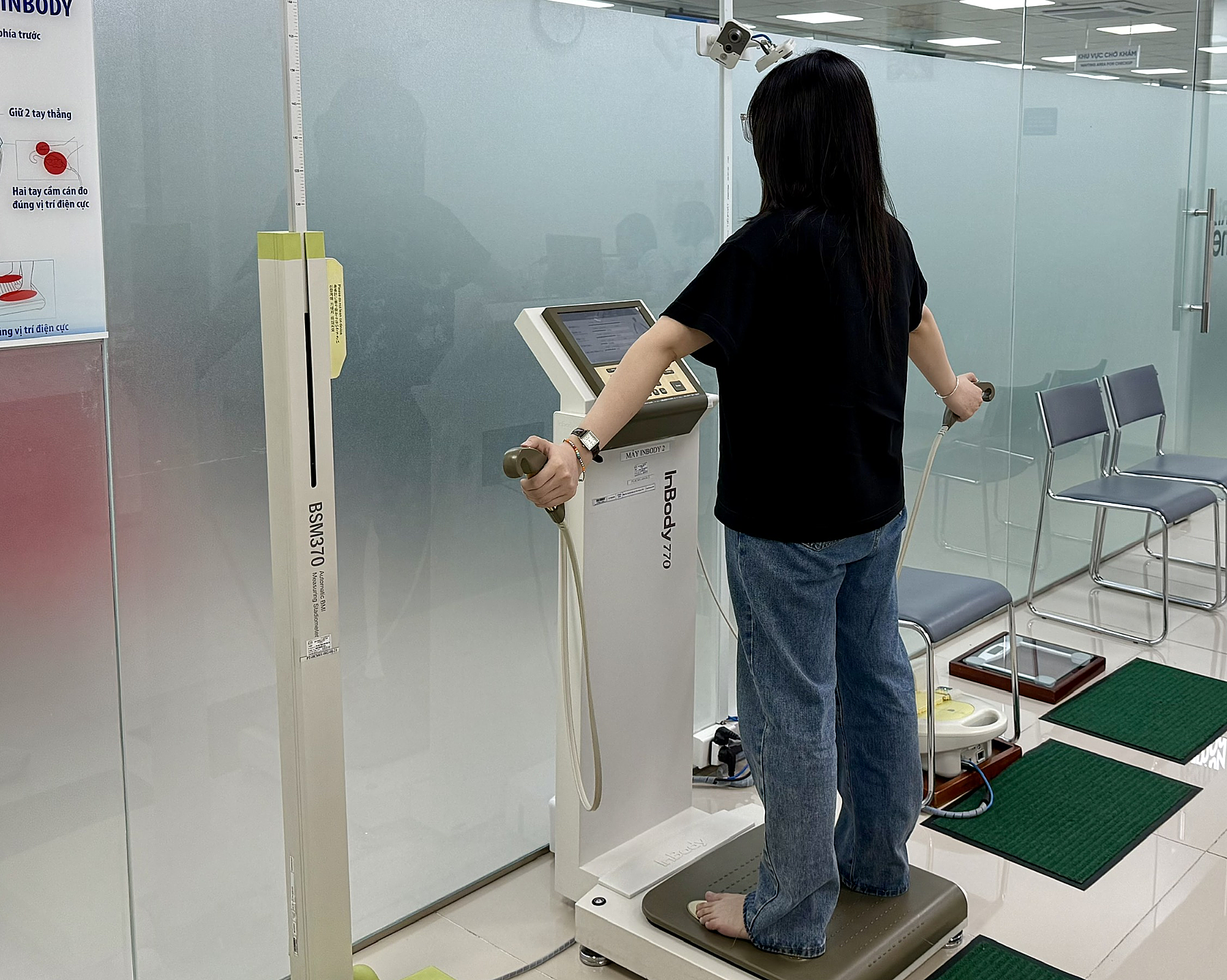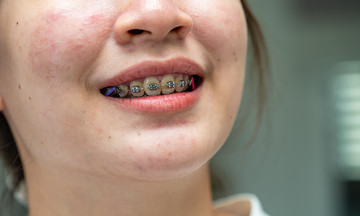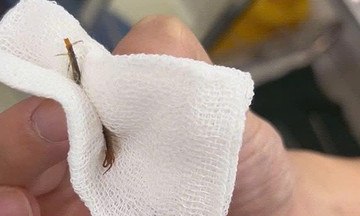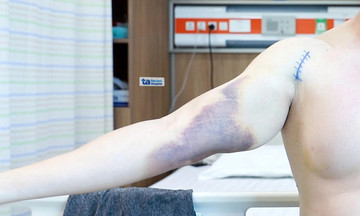Doctors at Tam Anh General Hospital in Ho Chi Minh City diagnosed Vy with severe malnutrition. She stands 1.56 m tall but weighs only 31 kg, giving her a BMI of 12.7. Her family explained that she became self-conscious about her appearance during puberty. The pressure to maintain a specific weight for martial arts competitions further fueled her desire to lose weight quickly. She limited herself to one small meal a day and sometimes induced vomiting afterward.
On 9/9, Dr. Dao Thi Yen Thuy, head of the hospital's Nutrition and Dietetics Department, reported that Vy's fat and muscle mass had severely depleted. She has also stopped menstruating, experienced a weakened immune system, developed anemia, and suffers deficiencies in iron, vitamin D, calcium, zinc, and protein. Dr. Thuy diagnosed Vy with anorexia nervosa, an eating disorder characterized by an intense fear of gaining weight, even when underweight. The condition can lead to serious complications, including heart problems, multiple organ failure, osteoporosis, and even death.
Puberty demands increased energy and nutrients for growth and development. Restrictive diets, especially those eliminating carbohydrates and fats, can hinder growth, disrupt hormone production, weaken the immune system, and negatively impact mental well-being.
 |
Dr. Yen Thuy consults with Vy during a follow-up appointment. Photo: Tam Anh General Hospital |
Dr. Yen Thuy consults with Vy during a follow-up appointment. Photo: Tam Anh General Hospital
To avoid refeeding syndrome, a potentially dangerous electrolyte imbalance caused by rapid reintroduction of nutrients, doctors are gradually restoring Vy's nutritional intake. Initially, she received easily digestible supplements rich in carbohydrates, proteins, fats, vitamins, minerals, and electrolytes to support her health and digestive function.
Vy's food intake is gradually increasing to include all four food groups, along with high-energy milk fortified with iron, calcium, vitamin D, and zinc. She's eating smaller, more frequent meals throughout the day, combined with psychological support. The goal is to restore her to a healthy weight, establish sustainable eating habits, and prevent further extreme dieting.
After two weeks of treatment, Vy has gained some weight and her mental state has stabilized. However, Dr. Thuy cautions that recovery from severe eating disorders can take months or even years, requiring ongoing support from family and medical professionals.
 |
A child undergoes body composition analysis using an InBody 770 machine during a nutritional assessment to identify deficiencies. Illustrative photo: Tam Anh General Hospital |
A child undergoes body composition analysis using an InBody 770 machine during a nutritional assessment to identify deficiencies. Illustrative photo: Tam Anh General Hospital
Dr. Thuy warns that overweight or obese adolescents often face pressure about their appearance and may resort to extreme weight loss methods. Parents should monitor their children for signs like rapid weight loss, skipping meals, preoccupation with weight, vomiting after eating, cessation of menstruation, and persistent fatigue. If these signs appear, it's crucial to seek professional help from nutritionists and mental health specialists.
Teenagers need a balanced diet with adequate energy, prioritizing whole grains, lean protein from meat, fish, eggs, and dairy, healthy fats from vegetable oils and fatty fish, along with daily servings of vegetables and fruits. Regular physical activity, at least one hour per day, is essential for maintaining a healthy weight, rather than resorting to restrictive diets.
Trong Nghia
*The patient's name has been changed.
| Readers can submit questions about nutrition here for doctors to answer. |












